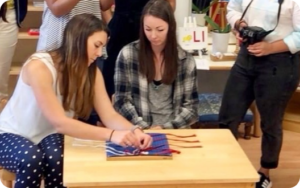Embarking on the journey to become a Montessori educator is not merely a career choice; it’s a profound commitment to transforming how we educate and nurture our future generations. Rooted in Dr. Maria Montessori’s pioneering philosophy, Montessori certification represents more than just a credential; it embodies a dedication to fostering independent, holistic, and child-centered learning experiences.
Montessori’s approach to education revolutionized traditional teaching methods by recognizing the unique developmental needs of each child and providing an environment that nurtures their natural curiosity and love for learning. Aspiring Montessori educators embark on a journey to understand and implement these principles, shaping the future of education one classroom at a time.
The path to Montessori certification is not one-size-fits-all. It requires a deep understanding of the time commitment involved and the various factors that influence the duration of the certification process. Prospective educators must carefully consider these factors as they embark on this transformative journey toward becoming Montessori-certified professionals.

Understanding Montessori Certification Programs
Montessori certification programs equip educators with comprehensive training tailored to various developmental stages, ensuring they possess the knowledge and skills necessary to meet the diverse needs of children. These programs offer training at different levels, catering to educators interested in working with children from infancy through adolescence.
- Infant & Toddler Certification: This certification focuses on understanding children’s unique developmental milestones and needs from birth to three years old. Educators learn to create nurturing environments supporting early exploration, sensory development, and language acquisition.
- Early Childhood Certification: Considered the foundational credential in Montessori education, the Early Childhood certification prepares educators to work with children aged 2½ to 6 years. This level covers many subjects, including practical life, sensorial, mathematics, language development, and cultural studies. Montessori training teaches educators to create carefully prepared environments that foster independence, self-discipline, and a love for learning.
- Elementary Certification: Building upon the principles learned in Early Childhood certification, the Elementary certification equips educators to guide children through the elementary years, typically spanning ages 6 to 12. This level emphasizes interdisciplinary learning, encouraging students to explore connections between subjects and develop critical thinking skills. Educators learn to facilitate hands-on experiences and foster a deep understanding of concepts through exploration and discovery.
- Secondary Certification: For educators interested in working with adolescents, the Secondary certification provides training in guiding students through the challenging transition to adolescence and beyond. This level focuses on specialized subjects, project-based learning, and preparing students for higher education and adulthood.
Each certification level covers a curriculum to foster holistic development and independent learning in children. Montessori training empowers educators to create dynamic learning environments that honor each child’s individuality and support their growth and development across all areas of life.
Factors Influencing Certification Timeline
The duration of Montessori certification programs can vary depending on several factors. One significant aspect to consider is the program format, in person and hybrid models are available. The hybrid programs blend in-person sessions with synchronous and asynchronous online components, offering flexibility for students to engage with the curriculum from a distance.
Moreover, prerequisites and prior education can influence the certification timeline. Some programs may require applicants to hold a bachelor’s degree before enrollment, while others may accept candidates with different educational backgrounds.
Another crucial factor is the individual learning pace of the student. Montessori certification programs cater to learners with diverse needs and schedules. While some individuals may complete the program within a year, others may extend their studies over two or three years to accommodate personal or professional commitments. In our program, flexibility allows aspiring educators to tailor their learning experience to their circumstances and preferences.
Typical Duration of Our Montessori Certification Program
Montessori certification programs typically span 13 to 18 months, providing a comprehensive curriculum that prepares educators for the challenges and opportunities of the classroom. However, the length of the program is not set in stone and can vary for individuals.
One of the primary determinants of program duration is the starting time. Some programs may offer multiple start dates throughout the year, allowing students to begin their studies at their convenience. Additionally, the pace at which students progress through the curriculum can influence the overall length of the program.
While many students complete their certification within the standard timeframe, others may choose to extend their studies over 2 or 3 years. This extended timeline can accommodate various circumstances, including work commitments, family responsibilities, or the desire for a more gradual learning experience. Ultimately, the flexibility of Montessori certification programs ensures that educators can tailor their training to meet their individual needs and goals.
Real-Life Examples and Testimonials
Real-life examples and testimonials from individuals who have completed Montessori certification programs offer valuable insights into becoming a Montessori educator. These personal anecdotes provide a glimpse into the challenges, triumphs, and transformation that accompany Montessori teacher training.
One such example is Paloma Johnston, the Founder and Director of Montessori Teacher Academy. With over twenty-five years of experience in teaching preschool and elementary children, Paloma brings a wealth of knowledge and expertise to her role as an educator. Her journey to becoming a Montessori teacher began with her Montessori Early Childhood Certificate from Montessori of Orange Teacher Training Center, followed by her Montessori Elementary Certificate from the Montessori Teacher College of San Diego.
Throughout her career, Paloma has been dedicated to sharing the principles and practices of Montessori education with adults, inspiring countless aspiring teachers.
Another inspiring figure is Emma Johnston León, Co-Director of the Montessori Teacher Academy program. With a background in Political Science and a Master’s in Leadership Development, Emma is Montessori Credentialed at the Early Childhood Level. Her experience includes teaching children at the early childhood level, serving as a Director at Monarch Bay Montessori Academy in Dana Point, California and an instructor for Leadership courses at UCI. As the program’s co-director, Emma brings her passion for leadership development and her commitment to Montessori principles to her role as an educator, consultant, and mentor. She is also a parent coach helping families elevate their Montessori principles and practices.
By sharing their experiences and insights, Paloma and Emma provide valuable guidance and inspiration to aspiring Montessori educators. Their dedication to Montessori education and commitment to supporting adult learners highlight the transformative power of Montessori certification programs. Through their leadership and mentorship, they continue to shape the future of Montessori education and inspire others to embark on their journey toward becoming Montessori teachers.
Embarking on the journey to become a Montessori educator is a significant commitment that requires careful consideration of various factors influencing the certification timeline. From understanding the different levels of Montessori certification to considering program formats and individual learning paces, prospective educators must research programs carefully to find the best fit for their needs.
It’s important to note that certification programs accredited by AMS and MACTE require in-person components, emphasizing the importance of practical experience in Montessori education. While online programs may offer convenience, they may not provide the necessary hands-on training required for a legitimate credential.
Aspiring Montessori educators are encouraged to explore programs prioritizing quality education and practical experience. Montessorita’s comprehensive Montessori certification offerings exemplify a program that values academic rigor and hands-on learning. Aspiring educators can embark on a fulfilling journey toward becoming certified Montessori teachers by choosing a program that aligns with their goals and values.




